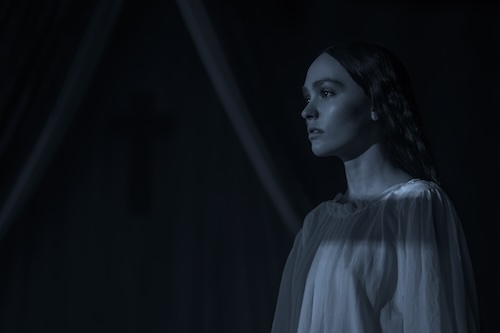
Nosferatu may be the byword for 'undead' but Robert Eggers' lavish new Gothic horror is alive and kicking, according to critics who've already seen it. The director's unstoppable run of critically acclaimed horror and fantasy hits, which has encompassed The Witch (2016), The Lighthouse (2020) and The Northman (2022), may have reached its apex in this blood-curdling vampire tale.
Nosferatu is a re-imagining of the 1922 German Expressionist horror movie directed by F.W. Murnau. An unofficial adaptation of Bram Stoker's 1897 novel Dracula, Nosferatu is widely considered to be one of the first horrors in the cinema medium and one that's extended a pervasive influence over all subsequent chillers. The film was remade by Werner Herzog in 1979 and now Eggers has a crack at it, realising a long-held passion project that sports an all-star cast.
Lily-Rose Depp stars as Anne Hutter, a 19th-century woman who has long been plagued by horrific nightmares that are as sensual as they are grisly. Terrifyingly, her visions may be about to come true with the arrival of the dreaded Count Orlok (an unrecognisable Bill Skarsgard) who is hellbent on making Anne his own, to the extent that he brings a rat-strewn plague to her local town. Nicholas Hoult co-stars as Anne's husband Thomas, the first person to make contact with Orlok at his forbidding castle in the mountains, alongside Willem Dafoe, Aaron Taylor-Johnson, Emma Corrin, Ralph Ineson and Simon McBurney.
If you aren't already excited about the prospect of seeing Nosferatu on the big screen, you soon will be after reading some of the reviews.
Robert Eggers' mastery of atmosphere is never in doubt
David Rooney, The Hollywood Reporter: "Bill Skarsgard has the cape, the fangs and the scary manicure. But it’s Robert Eggers who brings the evil intent to Nosferatu, which unfolds as if under a malignant spell, a movie possessed. Exciting, repulsive and beautiful in equal measure, this feels like something the writer-director has been working toward since his unsettling 2016 debut feature, The Witch.
"Steeped in dense atmosphere and macabre poetry, Christmas counterprogramming doesn’t get much darker than this exquisitely crafted fever dream. It’s thrilling to experience a movie so assured in the way it builds and sustains fear, so hypnotically scary as it grabs you by the throat and never lets go."
Clarisse Loughrey, The Independent: "In Robert Eggers’s Nosferatu, the vampire is reincarnated. He has shed his sparkle, his languid melancholy, his cobweb-speckled absurdity. He comes for you now – yes, you – as the murmuring voice in the dark, the one that calls your desires perverse and your soul unnatural. This creature feeds on shame, of both the faithful and the faithless. And he is as true to us as he was to FW Murnau, director of 1922’s original Nosferatu, or to Bram Stoker, whose novel Dracula provided the (unofficial, legally ruled as copyright infringement) source material.
“Does evil come from within us or from beyond?” asks Ellen Hutter (Lily-Rose Depp), the convulsing, hysteric target of vampiric attention. Eggers’s interpretation of the classic novel, via the classic silent film, is not only a luxurious, Gothic revelation – it’s also one of the most profoundly, seductively frightening horrors in years, all because its terrors seem to crawl right out from our own stomachs."
The film belongs to Lily-Rose Depp
Siddant Adlakha, IGN: "Depp rides this line with fearless abandon. She transforms the historically sidelined and objectified Ellen into a remarkable embodiment of what happens when a woman's own libido is not just weaponized against her — by an assailant, and by society — but is forced to exist in a complicated gray area between grooming and genuine lust. Eggers’ Nosferatu is, in essence, Ellen’s struggle to reclaim and exert her power over this dynamic — a liminal space between victimhood and voracious thirst — which makes its inevitable climax all the richer."
David Crow, Den of Geek: "Depp is the true revelation as Ellen, a woman whose unhealthy draw toward the dark manifests itself in several showstopping scenes of possession and contorted frenzies that blur the line between rapture and torture... Depp provides Nosferatu with a soul, giving texture and context to the ancient motif of 'Death and the Maiden.' Whether it’s The Daemon Lover, Renaissance cuttings eulogizing the Black Death, or Twilight, the artistic appeal of youth (usually feminine) and personifications of fetid decay has lingered in our popular imagination since time immemorial."
Bill Skarsgard is memorably horrifying
Nicholas Barber, BBC Culture: "[Orlok] is played by Bill Skarsgård (It, The Crow, John Wick: Chapter Four), not that anyone could recognise him underneath all the prosthetic make-up and the layers of heavy clothing. Eggers wisely keeps him at a distance and in the shadows during his first scenes, but the creature we're eventually shown is more like a maggoty walking corpse than the suave seducer seen in most vampire films.
"Rumoured to be a sorcerer who sold his soul to Satan in return for eternal life, Orlok has the fashion sense of Vlad the Impaler, a booming, vowel-mangling voice which makes it sound as if he is always at the far end of a tunnel, and the loudest wheeze since Darth Vader. He may never be as iconic as his 1922 counterpoint, and he doesn't seem as tragically lonely as he was when Max Schreck played him in Murnau's film, but the imposing (and decomposing) fiend that Eggers and Skarsgård have created is a Dracula/ Orlok unlike any other, which is quite an achievement after more than a century of on-screen vampires."
Matt Soller Zeitz, RogerEbert.com: "You could probably make a case that Skarsgard has been typecast in horror films since IT, but some of the greatest actors in cinema history were typecast in horror, and with the fullness of time we realize what a great gift it was.
"He seems to be turning into the 21st century's answer to Lon Chaney, the silent film actor who physically altered himself to disappear into visually distinctive and disturbing characters. This is the best work he's done yet. You don't think of it as a performance, but a repugnant yet strangely mesmerizing obscenity, excavated from a tomb and placed in front of the camera. You can practically smell the rot."
It does what a horror film is supposed to do: scare the pants off us
Robert Kojder, Flickering Myth: "Working alongside cinematographer Jarin Blaschke, Robert Eggers has outdone himself, this time with a film that isn’t solely stunningly composed but also makes exquisite use of shadows (either traveling or materializing across phases or objects barely enough to be noticeable but also terrifying) candlelit lighting, slickly drains colors from frames until resembling something akin to a black-and-white storybook, and somehow makes aggressive jump scares unsettling.
That last one shouldn’t work, considering jump scares are the bane of modern horror, but Robert Eggers knows how to weave them into his unforgiving, pulse-pounding tone. It comes across as less out of place and more as an extension of the horror permeating around every corner and during nearly every second. In a movie-going big in every department, from production design to costumes to performances to disgusting brutality, the occasional well-timed jump scare doesn’t come across as tacky, but another relentlessly exhilarating aspect."
Becky Darke, Total Film: "Technically, Nosferatu is a wonder. Eggers’ films are well known for their authenticity and stunning visuals and, working again with his frequent collaborators, director of photography Jarin Blaschke and production designer Craig Lathrop, he has created a bold spectacle of 1800s Europe. The film is a grand vision, once again employing breathtaking lighting to create much of its dread: even daytime scenes feel overwhelmed by the dark shadow of the monster. The film’s sound design veers from subtle to assaulting – I absolutely recommend watching Nosferatu at the cinema with the best audio you can find to experience its cacophony.
"Along with a decent number of well-earned jump scares, the horror of the vampire comes from dark blood, unspeakable acts, oppressive shadows and terrified, convulsing victims. The vampire’s curse is performed as a type of possession, with talk of demons and the occult, and at times the film tips over into exorcism territory."
Nosferatu is released on January 1st, 2025. Will you be making a date with the vampire?
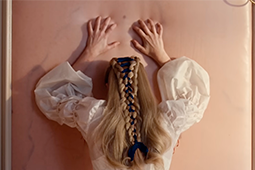
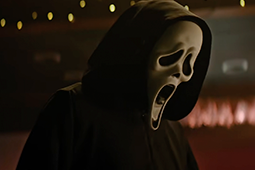
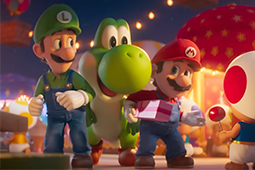
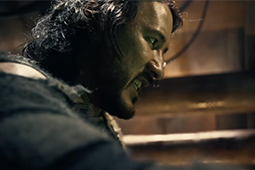
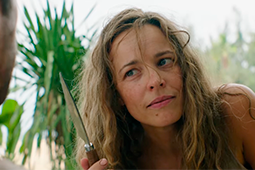
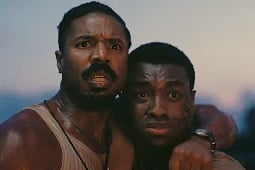
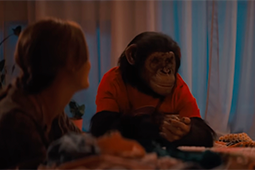

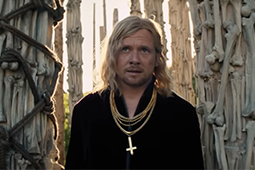
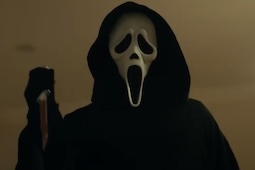
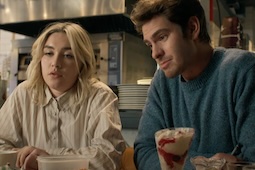


.jpg)
.png)





